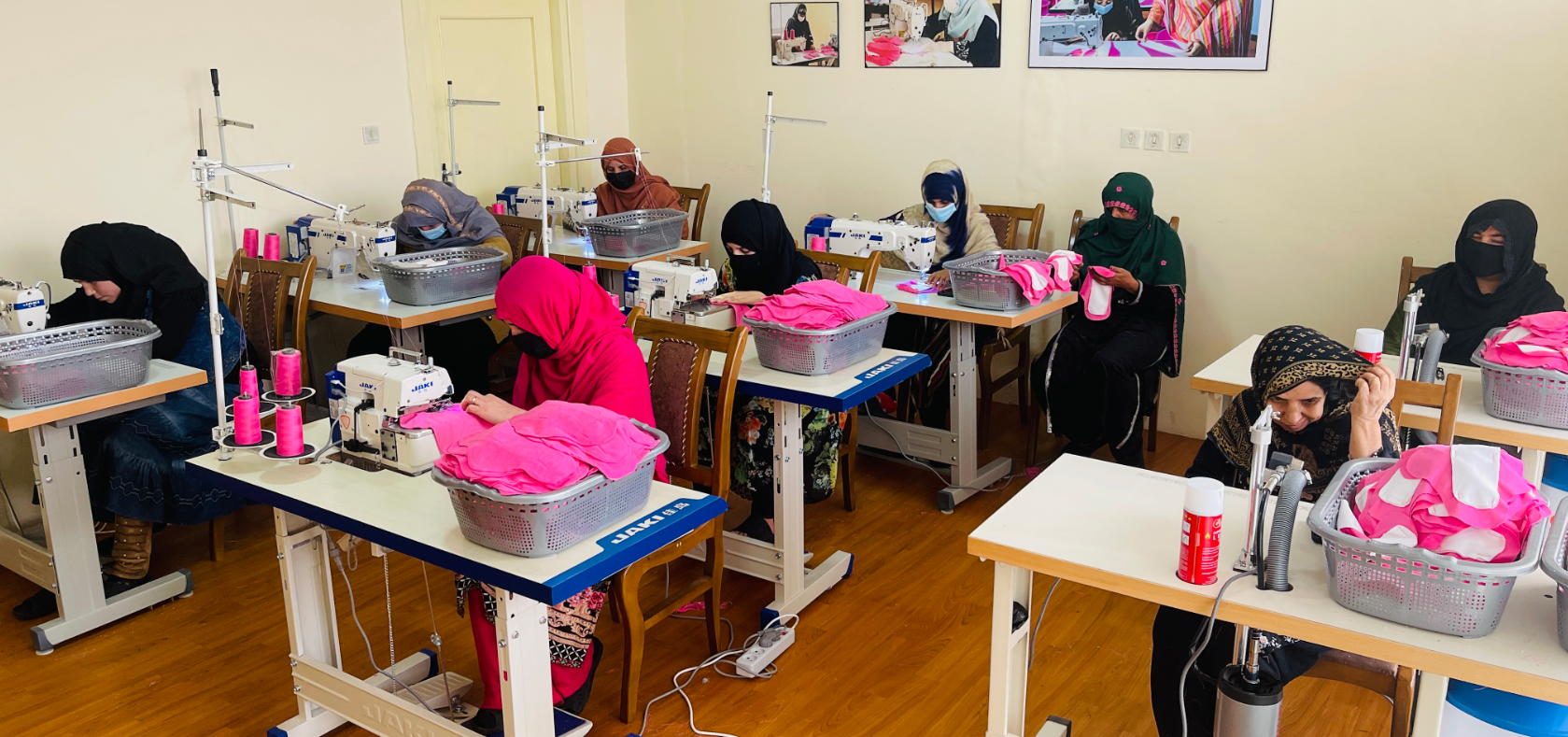Elevating skills and hope for women in Afghanistan
Date:

After being forced into marriage at the age of 7 and enduring a life of abuse, deprivation, hunger and seemingly endless housework, Maryam* says she would cry herself to sleep every day and was “just hoping to die”.
By the age of 19, her husband had abandoned her and their 1-year-old daughter in a country where women are banned from most forms of employment. Illiterate and without support, she fell into a deep depression.
But things started to turn around after Maryam joined a local women’s enterprise in Kandahar that has helped her get back on her feet.
“I am so happy that I am here, working and learning new things and skills. I am happy because there are no men here. We are all women working together and the most important thing is that I am getting well mentally by spending time here,” says Maryam.

UN Women began supporting this women’s enterprise in November to provide vocational skills, literacy, business and soft skills training and employment for 50 women, including women affected by gender-based violence in a sewing production line.
“Before, I didn’t even have money for my daughter’s milk, but now I can buy what I need for my daughter and myself. This place has a positive impact on my life and on my mental health,” says Maryam.
“Every woman should have this opportunity. Every single woman and girl has problems, especially we illiterate women – whether it is family violence or economic issues. We are not aware of our rights and we face all kinds of problems.”
Her fellow trainee, Khalida, is a 47-year-old mother of nine whose husband is sick and unable to earn enough to cover the family expenses.
“After coming here, my financial situation has improved,” she says. “Here, we have chance to share issues with each other and ask for solutions. … It has brought positive changes in our lives and saved us from poverty.”

The trainees, along with another 100 young women, also learn about reproductive health, menstrual hygiene, how to take care of their mental and emotional health and deal with gender-based violence. They have also received menstrual kits and psychosocial counselling and peer support.
Adela, a 45-year-old mother of nine, says the counselling has helped her deal with the mental stress of domestic violence. “My husband beats me and my children. He broke my hands many times.”
In the face of incredible restrictions on women and their rights, our partners are finding ways to help women rebuild their lives and support their families and communities,” says Alison Davidian, Special Representative of UN Women Afghanistan. “This initiative is not only providing women the opportunity to earn an income but also a safe space to build community and support their mental well-being."
“My neighbours also want to come to work and learn new skills, but there is no space for more women,” says project participant Zulaika, a 37-year-old divorced mother of four. “This project is very useful for us and we would be very happy to have more activities like this. Sometimes, when I am worried about the future, I remember this place and I somehow feel hopeful.”

Thanks to the project, Khalida says she is also now hopeful for the future.
“We are grateful to the international community for working for Afghan women in this critical situation and difficult circumstances,” says Khalida. “Such activities give us hope that one day everything will change, we will have access to education and each of us will be able to fulfil our dreams.”
*The names of all women in this article have been changed to ensure their protection.
This project is possible thanks to the generous support of UN Women Afghanistan donors, including Austria, Denmark, Finland, Iceland, Norway, Republic of Korea, Spain, Sweden and USAID.